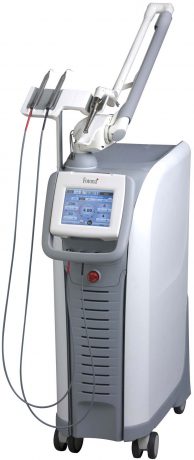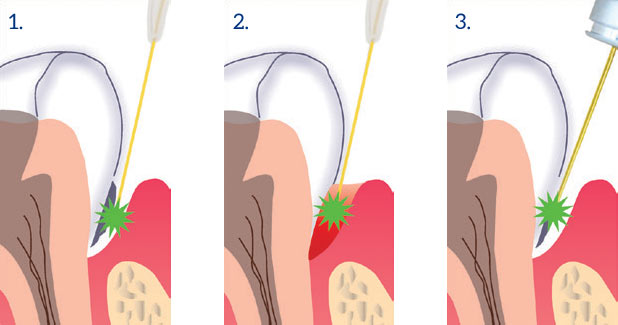Periodontal Laser Technology
 Methuen Periodontics is pleased to incorporate Fotona Laser technology in patient care.
Methuen Periodontics is pleased to incorporate Fotona Laser technology in patient care.
Dental lasers are playing an increasingly important role in periodontology, providing fast, simple and highly effective treatments for procedures such as closed curettage, gingivoplasty, gum pigmentation removal, crown lengthening, and more. Fotona’s dual-wavelength Er:YAG and Nd:YAG dental lasers are the perfect tools for performing the widest variety of laser-assisted periodontal procedures in a minimally invasive, cost-effective manner.
Introducing TwinLight® Periodontal Treatment
For treating periodontal disease, Fotona’s TwinLight® Periodontal Treatment (TPT) is a comprehensive and minimally invasive periodontal therapy incorporating the power of dentistry’s two most effective laser wavelengths: Er:YAG and Nd:YAG. The TwinLight® approach enables wavelength-optimized treatments for periodontal therapy (such as WPT™), which create the optimal conditions for healing periodontal tissues. What’s more, TPT prevents infection and promotes reduction in pocket depths.

The TwinLight® procedure is performed in three simple steps:
- The Nd:YAG laser removes the diseased epithelial lining of the periodontal pocket and improves access to the root surface.
- The Er:YAG laser is used to thoroughly remove microbial biofilm and calculus from the root surface.
- The Nd:YAG laser energy is used to coagulate and promote the formation of a stable fibrin clot.
Optimal Wavelength Combination
Utilizing both Er:YAG and Nd:YAG laser wavelengths in a single treatment makes optimum use of the unique laser-tissue interaction characteristics of each wavelength. For example, Nd:YAG laser energy is superior for coagulation and deep disinfection, while Er:YAG is uniquely efficient at gently removing the infected surface tissue and calculus from the root surface. Combined, they can dramatically improve the outcome of laser-assisted treatments, guaranteeing maximum safety and efficacy.
Benefits:
- Reduced pain and post surgical complications
- Reduced bleeding during the procedure
- Minimal invasive flap requiring minimal suturing
- Reduced amount of recession that may occur after conventional pocket elimination procedure
- The Biostimulation effect results in better outcomes and faster healing









